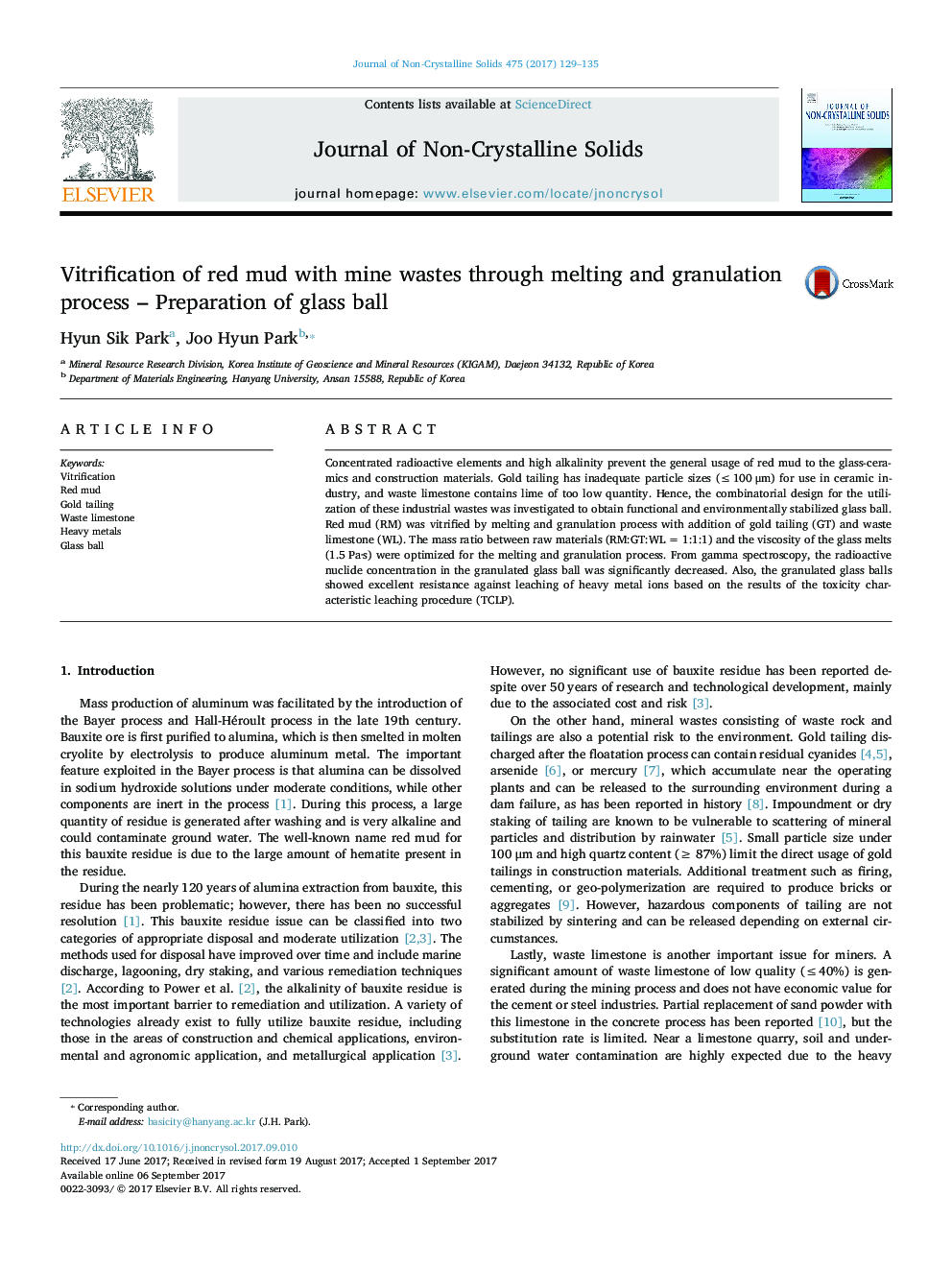| Article ID | Journal | Published Year | Pages | File Type |
|---|---|---|---|---|
| 5441039 | Journal of Non-Crystalline Solids | 2017 | 7 Pages |
Abstract
Concentrated radioactive elements and high alkalinity prevent the general usage of red mud to the glass-ceramics and construction materials. Gold tailing has inadequate particle sizes (â¤Â 100 μm) for use in ceramic industry, and waste limestone contains lime of too low quantity. Hence, the combinatorial design for the utilization of these industrial wastes was investigated to obtain functional and environmentally stabilized glass ball. Red mud (RM) was vitrified by melting and granulation process with addition of gold tailing (GT) and waste limestone (WL). The mass ratio between raw materials (RM:GT:WL = 1:1:1) and the viscosity of the glass melts (1.5 Pa·s) were optimized for the melting and granulation process. From gamma spectroscopy, the radioactive nuclide concentration in the granulated glass ball was significantly decreased. Also, the granulated glass balls showed excellent resistance against leaching of heavy metal ions based on the results of the toxicity characteristic leaching procedure (TCLP).
Keywords
Related Topics
Physical Sciences and Engineering
Materials Science
Ceramics and Composites
Authors
Hyun Sik Park, Joo Hyun Park,
